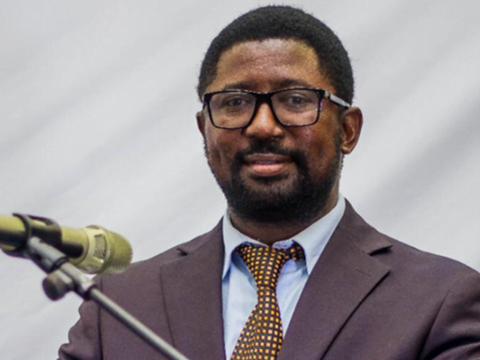By Abass Jalloh
The Institute for Governance Reform (IGR) has launched a report on issues of land management in Sierra Leone, citing various challenges on land acquisition and the effects on the livelihood of residents during the process.
The report named: “The Freetown Disasters: rethinking Sierra Leone’s approach to land reform”, focuses on the Freetown land market, the political economy affecting land and housing reform, climate change and natural disasters.
The IGR report which was presented to the Ministry of Lands, Housing and Country Planning in Freetown on Monday December 5 takes a critical look at the political incentives that keep Freetown's land management in chaos and discusses the implications for access to housing for the Western Region of Sierra Leone.
Successful cases in Sub-Saharan Africa were highlighted to illustrate how different incentive systems can support the reform of the land market for better urban planning and sustainable development.
IGR Executive Director, Andrew Lavalie, told the gathering that the report was tied around the 2018 SLPP manifesto promise of sanitizing and reforming the land tenure system to ensure equitable distribution of land and facilitate a national debate on land tenure reform.
The report says state land is sold by the land ministry, usually on a rolling basis with a focus on providing small plots, for single-family dwellings. It says: “A prospective land buyer applies to the ministry stating his/her intention to buy land. The prospective buyer then works informally with government officials in the ministry to determine where pieces of state land are available.”
It added that “a majority of landowners interviewed for this paper allege that an application is often approved by bribing officials paid by the prospective buyer, and then a plot is often allocated in places that are not pre-laid out or planned.”
Private lands on the other hand are owned by citizens and can be sold to anyone with an interest in their property. “This scheme has proved to be the riskiest for buyers, as individuals land-owning family members and community elders can claim the right to the same plots of land and re-sell the same plot to multiple buyers at any given time,” the report states.
In effect, the report clearly points out that over the last 10 years, Freetown has experienced natural disasters that can be attributed to its unplanned urbanization and rapid deforestation of the hills surrounding the capital. Reference’s made to the deadly mudslides in 2017 and 2022 that hundreds of lives and howe these environmental disasters continue to plague a city experiencing unprecedented growth in slum communities, homelessness and urban poverty.
IGR argues that “unless bi-partisan solutions are designed and implemented, entrenched practices and vested interests in Freetown's land and housing market will continue to hinder urban reform and make it difficult to mitigate disasters.”
Making his statement on behalf of the Lands Minister, the Deputy Minister, Rev. Abraham Sesay-Jones, stated that following the enactment of the new land rights Act on the 10th August 2022 and the declaration of the World Bank funded Sierra Leone land administration project, effective on the 27th October 2022, the government, civil society organizations, development partners and other stakeholders embarked on several initiatives toward the domestication of a land law and implementation framework to the Sierra Leone land administration project.
Rev. Sesay-Jones stated that they had achieved the development and enactment of National Land Commission and Customary Land Rights Act 2022 to promote tenure and security, respond to investment and address climate change, and contribute to poverty alleviation and promote inclusivity in natural resource management.
He said the government has secured the 41.1 million Dollar grant from the World Bank to establish an efficient and accessible land administration system.
In resetting urban planning, land management, and housing provision, the report recommends the expediting of the development of building codes and standards for Sierra Leone.
It suggests that there should be more public education campaigns on climate change and more stringent measures to limit actions that speed up climate change and cause more environmental damage.
According to the report, there’s need to expedite legislation for automation of land administration process and support the ministry develop an open and publicly accessible electronic platform for land management.
It further recommends for a bi-partisan consensus on a new housing solution that de-emphasises the sale of a one-town lot approach in favor of large-scale acquisitions of land by property developers.
Copyright © 2022 Politico Online








